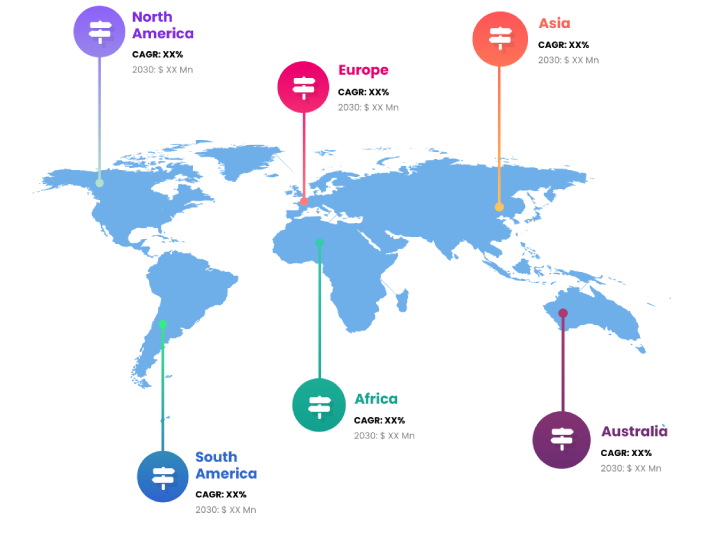Eating foods that are low in calories can help regulate your weight more effectively, which in turn speeds up your weight reduction. These foods are great for curbing hunger since they are low in calories and packed with protein and fiber. In addition to being low in calories, foods that are rich in vitamins and minerals are good for one's health in general. Also, eating foods that are low in calories helps with digestion and keeping blood sugar levels stable, which in turn reduces cravings for sugary foods and fast food. Many people throughout the world eat low-calorie foods such as Greek yogurt, oats, berries, soup, eggs, chia seeds, and fish.

More and more people are concerned about their health, which is driving up the demand for low-calorie food products. Due to the ongoing pandemic, individuals now understand how critical it is to take care of their health. There has been a general trend toward people wanting to be physically fit. Working people's health suffers due to stress and sedentary lifestyles. Obesity, brought on by insufficient physical activity and hectic work schedules, has given rise to a host of health problems, including diabetes and hypertension. As time goes on, more and more individuals are beginning to understand the seriousness of the situation and are taking steps to improve their health.
Research from reputable institutions like the World Health Organization (WHO) has shown that obesity is the main reason why people get health problems including high blood pressure, diabetes, and heart disease. The demand for low-calorie food products has increased due to the ever-increasing population of overweight people. The current scenario has been greatly affected by the COVID-19 epidemic. There has been a dramatic change in eating habits, with many low-calorie goods gaining popularity, due to the increased focus on developing immunity in order to combat the virus.
Those who are concerned about their calorie intake often look for low-calorie food and drink options, and this is where the low-calorie market comes in. Food, drinks, snacks, sweets, sauces, and meal replacements are all part of it. Worldwide estimations put the market's recent expansion in the billions of dollars. Notable regions propelling this expansion include Asia Pacific, Europe, and North America. Consumers' growing interest in health and wellbeing, along with the epidemic of obesity, is driving the market forward.
The low-calorie market is dominated by Coke, PepsiCo, Nestlé, General Mills, and Unilever. From diet beverages to reduced-fat snacks to low-calorie frozen meals, these companies provide a variety of low-calorie options in their product lines. In addition to larger companies, smaller, more specialist brands provide low-calorie items that are both innovative and specialized. As more and more people look for healthier options and prioritize weight management, the low-calorie sector has a lot of room to develop. The market is being propelled even further by the efforts of governments and health organizations to encourage better eating habits. Competition in the industry is fierce, with both large corporations and up-and-coming labels fighting for a piece of the growing pie.
With health being a top priority in the wake of the extraordinary COVID-19 outbreak, adopting a balanced diet and regular exercise routine has emerged as a prominent trend. As more and more people look to achieve a healthy nutritional balance, it's no surprise that the market is seeing a surge in demand for low-calorie diet products, minimally processed foods, and functional snacks. Concerning possible health hazards, rumors have been circulating. For example, there is mounting evidence linking meat eating to a host of health problems. A growing number of people around the world are opting for plant-based, low-calorie diets. Since there is currently no vaccine or treatment for COVID-19, this trend will further accelerate as people worry about how to stay protected.
The demand for low-calorie food is being driven by the increasing adoption of healthy lifestyle habits and eating plans. The introduction of new functional meals and nutritional supplements is expected to propel the industry forward in the next years. Food manufacturers will most likely introduce new items in these areas in response to shifting consumer tastes. Low-calorie foods have many positive effects on health. Key risk factors for cardiovascular disease, such as obesity, stress, and diabetes, can be better managed with its support. As a result of the reduced sugar content in low-calorie foods, it aids in the management of diabetes.
Report Coverage
Global Low Calorie Food research report categorizes the market for global based on various segments and regions, forecasts revenue growth, and analyzes trends in each submarket. Global Low Calorie Food report analyses the key growth drivers, opportunities, and challenges influencing the global market. Recent market developments and Low Calorie Food competitive strategies such as expansion, product launch and development, partnership, merger, and acquisition have been included to draw the competitive landscape in the market. The report strategically identifies and profiles the key Low Calorie Food market players and analyses their core competencies in each global market sub-segments.
| REPORT ATTRIBUTES | DETAILS |
|---|---|
| Study Period | 2017-2031 |
| Base Year | 2024 |
| Forecast Period | 2024-2031 |
| Historical Period | 2017-2021 |
| Unit | Value (USD Billion) |
| Key Companies Profiled | PepsiCo, The Coca-Cola Company, Bernard Food Industries, Danone S.A., Nestle, ADM, Ajinomoto Health & Nutrition North America, Inc., Cargill, Incorporated, DSM, DuPont, BENEO, Abbott, Keurig Dr Pepper, Inc., Zydus Wellness, Roquette Frères, PureCircle, Ingredion Incorporated, Tate & Lyle, The Brooklyn Creamery, Grain Processing Corporation. |
| Segments Covered | • By Product |
| Customization Scope | Free report customization (equivalent to up to 3 analyst working days) with purchase. Addition or alteration to country, regional & segment scope |
Key Points Covered in the Report
- Market Revenue of Low Calorie Food Market from 2021 to 2031.
- Market Forecast for Low Calorie Food Market from 2021 to 2031.
- Regional Market Share and Revenue from 2021 to 2031.
- Country Market share within region from 2021 to 2031.
- Key Type and Application Revenue and forecast.
- Company Market Share Analysis, Low Calorie Food competitive scenario, ranking, and detailed company
profiles. - Market driver, restraints, and detailed COVID-19 impact on Low Calorie Food
Market
Competitive Environment:
The research provides an accurate study of the major organisations and companies operating in the global Low Calorie Food market, along with a comparative evaluation based on their product portfolios, corporate summaries, geographic reach, business plans, Low Calorie Food market shares in specific segments, and SWOT analyses. A detailed analysis of the firms' recent news and developments, such as product development, inventions, joint ventures, partnerships, mergers and acquisitions, strategic alliances, and other activities, is also included in the study. This makes it possible to assess the level of market competition as a whole.
List of Major Market Participants
PepsiCo, The Coca-Cola Company, Bernard Food Industries, Danone S.A., Nestle, ADM, Ajinomoto Health & Nutrition North America, Inc., Cargill, Incorporated, DSM, DuPont, BENEO, Abbott, Keurig Dr Pepper, Inc., Zydus Wellness, Roquette Frères, PureCircle, Ingredion Incorporated, Tate & Lyle, The Brooklyn Creamery, Grain Processing Corporation.
Primary Target Market
- Market Players of Low Calorie Food
- Investors
- End-users
- Government Authorities
- Consulting And Research Firm
- Venture capitalists
- Third-party knowledge providers
- Value-Added Resellers (VARs)
Market Segment:
This study forecasts global, regional, and country revenue from 2019 to 2031. INFINITIVE DATA EXPERT has segmented the global Low Calorie Food market based on the below-mentioned segments:
Global Low Calorie Food Market, By Product Type
Snacks
Beverage
Frozen meals
Baked goods
Dairy products
Global Low Calorie Food market, By distribution channel
Supermarket
Hypermarket
Convenience stores
Online retail stores
Global Low Calorie Food Market, By ingredients
Natural sweeteners
Sugar substitutes
Low fat
Fat-free
Plant-based
Global Low Calorie Food market, Regional Analysis
- Europe: Germany, Uk, France, Italy, Spain, Russia, Rest of Europe
- The Asia Pacific: China,Japan,India,South Korea,Australia,Rest of Asia Pacific
- South America: Brazil, Argentina, Rest of South America
- Middle East & Africa: UAE, Saudi Arabia, Qatar, South Africa, Rest of Middle East & Africa
You will get in-depth and extensive low calorie food market market research and competitor analysis for your business to help you develop more profound insights into the low calorie food market Market.
Through INFINITIVE Data Expert is a professional Market Research services, I will identify the low calorie food market market size, demand & opportunities, growth rate, and target audience with a comprehensive analysis of your competitors.



